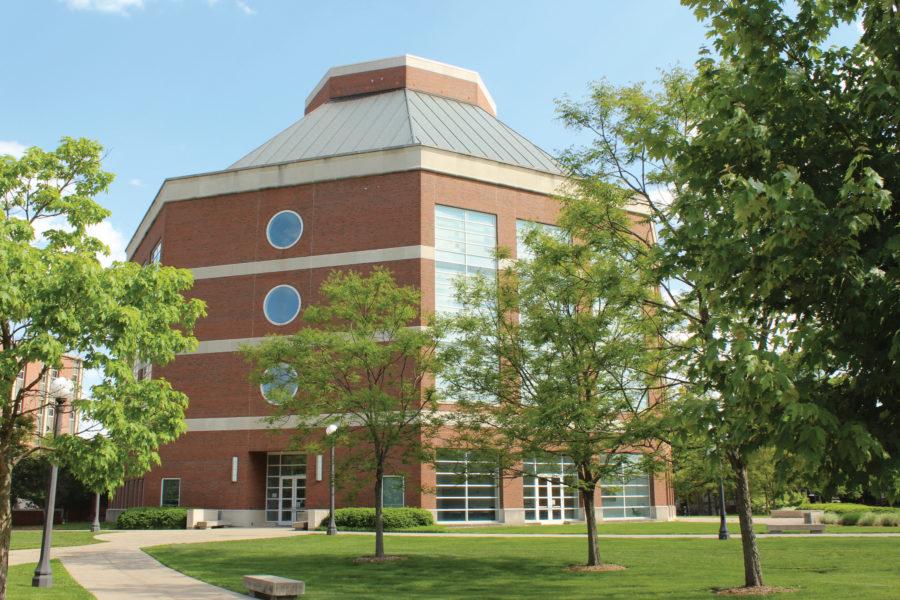Plant Science Symposium explores innovations in crop sciences
The ACES library is located at 1101 S. Goodwin Ave. in Urbana. The library is hosting a the Plant Sciences Symposium on Friday.
October 4, 2019
The Plant Science Symposium explores diversity in perspectives in the plant sciences field and will take place on Friday at the ACES Library.
The theme of the fourth-consecutive symposium is: “Bridging The Gap: Embracing the Era of Integrated Agriculture,” focusing on how the contributions of scientists from different backgrounds can make agricultural practices more efficient.
In 2016, the University held its first plant science symposium, joining over 50 institutions that have previously held symposiums.
Michael Paulsmeyer, graduate student in ACES, helped organize the event.
“’Bridging the Gap’ is all about how crop sciences itself is so inherently multi-disciplinary, that in order to adapt to and overcome challenges in the future, we must collaborate with scientists with diverse backgrounds,” Paulsmeyer said in an email.
Get The Daily Illini in your inbox!
The symposium is part of the Corteva Agriscience Plant Sciences Symposia series, “a global network of student-organized and student-driven” day-long events where students explore the plant science field and host its leading experts.
According to Paulsmeyer, the goal of the symposium is to give students organizational and leadership skills they will utilize after graduation.
With the use of both local and international research, the Department of Crop Sciences is advancing methods of environmental protection and food security.
“Our faculty are internationally recognized and lead cutting-edge research programs,” Paulsmeyer said. “It focuses on areas such as bioinformatics, crop genetic improvement and production, plant protection, sustainable food and environmental systems and water quality.”
According to Paulsmeyer, the sheer number of environmental issues facing the planet is increasing the need for innovative thinkers.
“Developing technologies and innovations in agriculture for the U.S. alone will not solve the problems worldwide,” Paulsmeyer said. “We need scientists with knowledge of agricultural systems in other countries to help these areas develop better agriculture systems.”
Advancements in technologies are needed to address issues such as pest management, plant breeding and human nutrition, as outlined by Maria Malvino, doctoral student in ACES.
Organizers emphasize that this year’s symposium aims to spark new ways of thinking and to better the future with the assistance of those in the agricultural fields.
Recent developments in the crop sciences department have been centered around groundbreaking innovations surrounding photosynthesis, according to Malvino.
“Researchers have found that crops engineered with a photorespiratory shortcut are 40% more productive in real-world agronomic conditions,” Malvino said in an email.
Malvino said this equates to feeding 200 million additional people in a given year in the Midwest with calories that are lost to photorespiration.
“This is a very important finding taking into account the future food demands, as it is expected that the world population would increase by 2.2 billion people in 2050,” Malvino said.
Since the series began in 2008 at the University of Minnesota, Corteva has seen 120 events in 14 different countries across six continents.
Besides the sponsorship by Corteva Agriscience, the event is also funded by DowDuPont’s Agriculture Division, the University Department of Crop Sciences and the ACES Office of Research.







